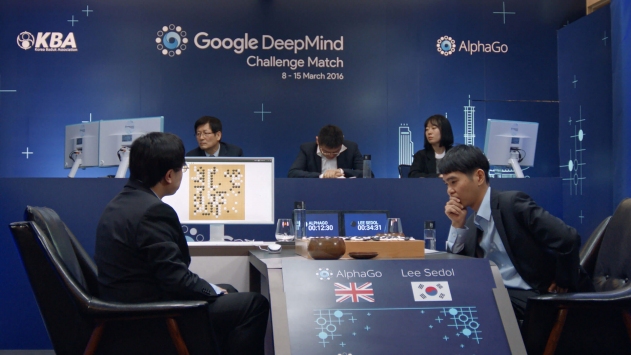
In a pivotal scene from Greg Kohs' new documentary ALPHAGO, computer scientists hunch together in a control room reading out predictions from a computer program that they have pitted against the world-leading champion, Lee Sedol, of the board game Go. In a best-of-five tournament held in March of 2016, the computer program, Google’s AlphaGo, won four games. Kohs is in the room during this landmark moment for the application of artificial intelligence research.
Set to an orchestral score, Kohs' film graphically explains the way that Go is played and the 10,170 possible configurations a board can take. In 1997, IBM’s program Deep Blue beat champion Gary Kasparov in one of six chess matches. As the film makes clear, it was predicted that artificial intelligence would not be advanced enough to beat a human at a game as complex as Go for another ten years. Going into the match, Sedol speaks confidently about the game and even the computer scientists express doubts that their program will be victorious.

Go, like chess, is a turn-taking game. The program AlphaGo has an algorithm that instructed its neural networks to train via an uploaded databased of professional matches. Improvements were further implemented by the machine playing itself, as well as from additional games with Go masters. This is a technique called deep learning.
The director of ALPHAGO, Greg Kohs, seems to buy into the idea that machines will help humans be better humans. Sedol speaks to the camera after winning about how being pitted against AlphaGo has given him a new reason to play. There is passing mention that artificial intelligence engineers from top companies such as IBM and Google should ensure there is a consensus about ethical boundaries. But for a film that seems to ultimately be about humans and less about the research, the director does not make much effort to go beyond the confines of conference rooms. It is, however, amazing that he is there.

ALPHAGO is now in theatres. Directed and filmed by Greg Kohs, it is composed by Volker Bertlemann, and edited by Cindy Lee.